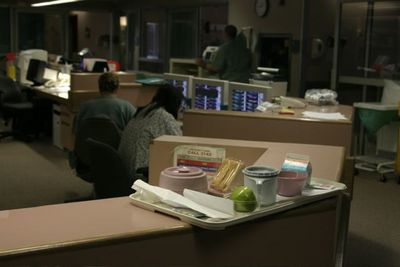



Oncology Dietitians
Cancer and related comorbidities affect nutritional status and poor nutritional status impairs recovery and quality of life.
Weight loss and malnutrition are not uncommon in persons living with cancer. The incidence and extent of nutritional compromise depends on many factors such as: tumour type, location, grade and stage as well as treatment and individual factors. Nutritional status plays a role in the ability to undergo and withstand treatment, complications, length of hospitalization, discharge planning, survival and quality of life.[2]
Dietitians are health professionals with a Bachelor’s degree focusing on food science and nutrition, and a practicum in a hospital or community setting. Many dietitians have graduate degrees as well. Dietitians are members of a provincially regulated profession that has Public Protection as their mandate. Dietitians are accountable for their conduct and the care they provide.[1]
In cancer care dietitians play a role at every stage in cancer, from prevention to palliation. Dietitians are involved with:
primary prevention
cancer treatment
secondary prevention
cancer recurrence
palliative/end of life care
"The key to providing effective oncology nutrition care is anticipating and diagnosing deterioration in nutritional status, and then preventing its onset or rectifying it before it reaches clinical significance. " [2]
Nutritional status impacts all aspects of care

Dietitians provide leadership in caring for the nutritional status of cancer patients and play an active role in:
screening
identifying
treating
monitoring
the nutritional status of patients.
All members of the team can be more aware and involved in the nutritional aspects of cancer care.
When to involve a dietitian
Consult dieticians early for patients experiencing or expected to experience:
enteral or parenteral nutrition support,
unintentional weight loss
wound healing problems
gastrointestinal problems.
anorexia
dysphagia
chewing difficulties
mucositis/esophagitis
fatigue
nausea
vomiting
early satiety
constipation or diarrhea that impairs intake
thick saliva
taste alterations
Dietitians play a role at all stages of a cancer diagnosis.
Dietetic Resources

the College of Dietitians of Ontario
Canadian Oncology Nutrition Standards of Practice
Code of Ethics For The Dietetic Profession In Canada
_________________________________
1. Dietitians of Canada http://www.dietitians.ca/public/content/career_in_nutrition/difference_dietitian_nutritionist.asp accessed February 5, 2008.
2. Canadian Oncology Nutrition Standards of Practice. 2004 Dietitians of Canada. http://www.dietitians.ca/resources/resourcesearch.asp?fn=view&contentid=5150 accessed february 5, 2008.
 Previous
Previous